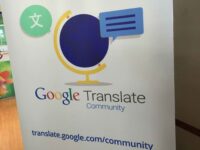Several weeks ago, the CRTC released the first set of what is likely to become at least a dozen decisions involving the Online Streaming Act, formerly known as Bill C-11. One of those decisions involved establishing which services would be required to register with the CRTC as part of new registration requirements in the law. That sparked an immediate public debate over the scope of the registration requirements and their potential applicability to podcasts. This week’s Law Bytes podcast tries to set the record straight: the registration rules – and even the forthcoming regulations – will not regulate what you can say on a podcast nor do they establish a government podcast registry. However, the registration rules and the forthcoming regulations will have a direct or indirect impact on podcasts.
Latest Posts
The Broadcasters’ Online News Act Submission: Demanding An Even Bigger Piece of the Bill C-18 Pie for Bell, Rogers and the CBC
The government has yet to release its final regulations for the Online News Act, but recent comments from News Media Canada seemed to suggest that it is hoping to find common ground with Google, stating that it supports the company’s proposed amendments to Bill C-18 draft regulations. While that may be a long shot – I posted that Google’s call for legislative changes signals that it has arrived at the conclusion that regulations alone cannot fix the foundational flaws in the law – the Canadian Association of Broadcasters has created yet another complication. The lobby group representing private broadcasters such as Bell and Rogers isn’t looking to find a compromise position. Instead, its submission indicates that wants all broadcasters (which given the law would include the CBC) to get an even bigger portion of the potential Bill C-18 revenues by expanding the definition of “journalist” to include everyone from sound and video engineers to researchers and fact checkers. The expansive definition prioritizes many broadcasting jobs, which would mean conventional newspaper services likely would get even less than the current estimate of 25% of revenues.
The Law Bytes Podcast, Episode 180: Victoria Owen Sets the Record Straight on the State of Canadian Copyright Law and Content Licensing By Libraries and Educational Institutions
Since the Canadian copyright law reforms in 2012, education and libraries have increased spending on licensing and a non-partisan House of Commons study found no need to create new restriction on education and library copying rights. Yet with misinformation flooding the copyright debate, the Canadian Federation of Library Associations recently spoke out in an effort to set the record straight. Victoria Owen, a leading expert on copyright and libraries, is the chair of the CFLA copyright committee. She joins the Law Bytes podcast to discuss the CFLA statement and copyright law in Canada.
Regulations Alone Can’t Fix Bill C-18: Why News Media Canada’s “Surrender” May Not Be Enough to Stop Google From Blocking News Links in Canada
After months of urging Heritage Ministers Pascale St-Onge and Pablo Rodriguez to stand up to Google and Meta’s response to Bill C-18, News Media Canada – the lead lobbyist for the legislation – appears to have waved the surrender flag as it is now urging the government to accommodate Google’s concerns with draft regulations. The shift in approach unquestionably marks a retreat for the group, which literally drafted a version of the bill for the government and wielded the power of major media outlets to skew national coverage in favour of the legislation. While it insisted that the companies were bluffing when they said they would block news links if a mandated payments for links approach were adopted, it is now readily apparent that they were mistaken. Meta has blocked news links on its Facebook and Instagram platforms for more than two months and shows no sign of changing its approach. Given that Google appears to be moving in the same direction, News Media Canada’s decision to toss the government under the bus reeks of desperation as its members recognize that blocked news links on both Meta and Google would create enormous harm in lost traffic, cancelled deals, and an Online News Act that generates no revenues.
Canada Plans to Regulate Search and Social Media Use of Artificial Intelligence for Content Moderation and Discoverability
The Canadian government plans to regulate the use of artificial intelligence in search results and when used to prioritize the display of content on search engines and social media services. AI is widely used by both search and social media for a range of purpose that do not involve ChatGPT-style generative AI. For example, Google has identified multiple ways that it uses AI to generate search results, provide translation, and other features, while TikTok uses AI to identify the interests of its users through recommendation engines. The regulation plans are revealed in a letter from ISED Minister François-Philippe Champagne to the Industry committee studying Bill C-27, the privacy reform and AI regulation bill. The government is refusing to disclose the actual text of planned amendments to the bill.











